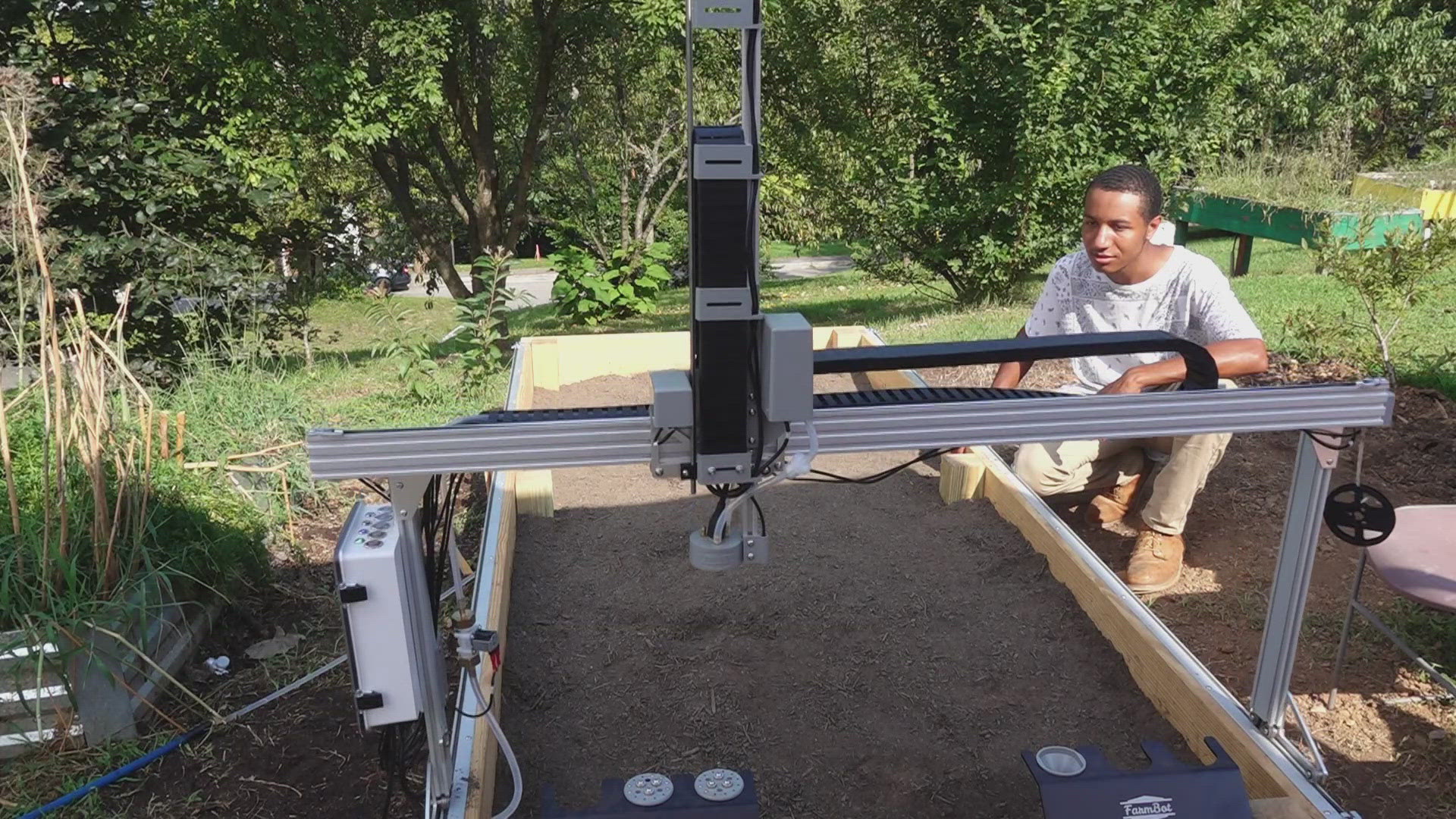KNOXVILLE, Tenn. — The nonprofit Socially Equal Energy Efficient Development, or SEEED, is developing an urban agriculture boot camp by using artificial intelligence technology and a farming robot.
The University of Tennessee and SEEED have partnered to bring a farming bot to East Knoxville. It's a part of SEEED's mission — to reduce urban poverty and help young people get ready to start their careers.
Stan Johnson, SEEED's executive director, said Knoxville is one of many locations that face challenges with food deserts — areas where people are not able to access fresh fruits and fresh vegetables, or many other staples of typical diets. Typically, he said people can't access these kinds of foods due to a lack of transportation.
"A lot of people have transportation, so they're not thinking about where they're gonna go buy their bananas or where they're gonna go buy their plums, things of that nature or where they're gonna buy the cabbage. So we wanna make sure that people have access to these fresh fruits and fresh vegetables within their own community," he said.
The boot camp also gives participants the chance to take pathways and learn more about subjects like engineering.
"We want more people of color, plain and simple, from these communities to go other places, right? We wanna make sure that there's diversity throughout STEM education," said Johnson.
To improve diversity in STEM fields, students will have the chance to program a farming robot themselves. The bot will be able to plant seeds, water plans based on their type and even pull weeds.
"We think that to increase diversity, it's not just about giving access. It's also about actively involving people in the design and advocacy," said Sukanya Moudgalya, an assistant professor of STEM Education at the University of Tennessee. "I think it would not just create more informed citizens, but citizens who actively know how to advocate for AI, especially for themselves and their community."
She said students will be able to take their experiences into the future, and one day may be called on by leaders to advocate for different policies relating to artificial intelligence. UT staff said they hope to use AI to teach how it can impact people on the local level and work toward lowering food injustice.
"This is really innovative to have because, in my opinion, thinking about not just technology, but thinking about technology in a socially just context is very important. And here, the social justice context is that members of the East Knoxville community don't have a whole lot of grocery stores, or it's basically a food desert," said Sai Swaminathan, an assistant professor at UT.
The farming robot isn't fully programmed yet, giving students and community members a chance to learn more about programming and farming.
"We are going to continue working with an organization like SEEED over the next year thinking about — how do we educate the community?" said Swaminathan
UT staff said they hope to bring more of the robots to the area and are continuing to write more grants to do so.

